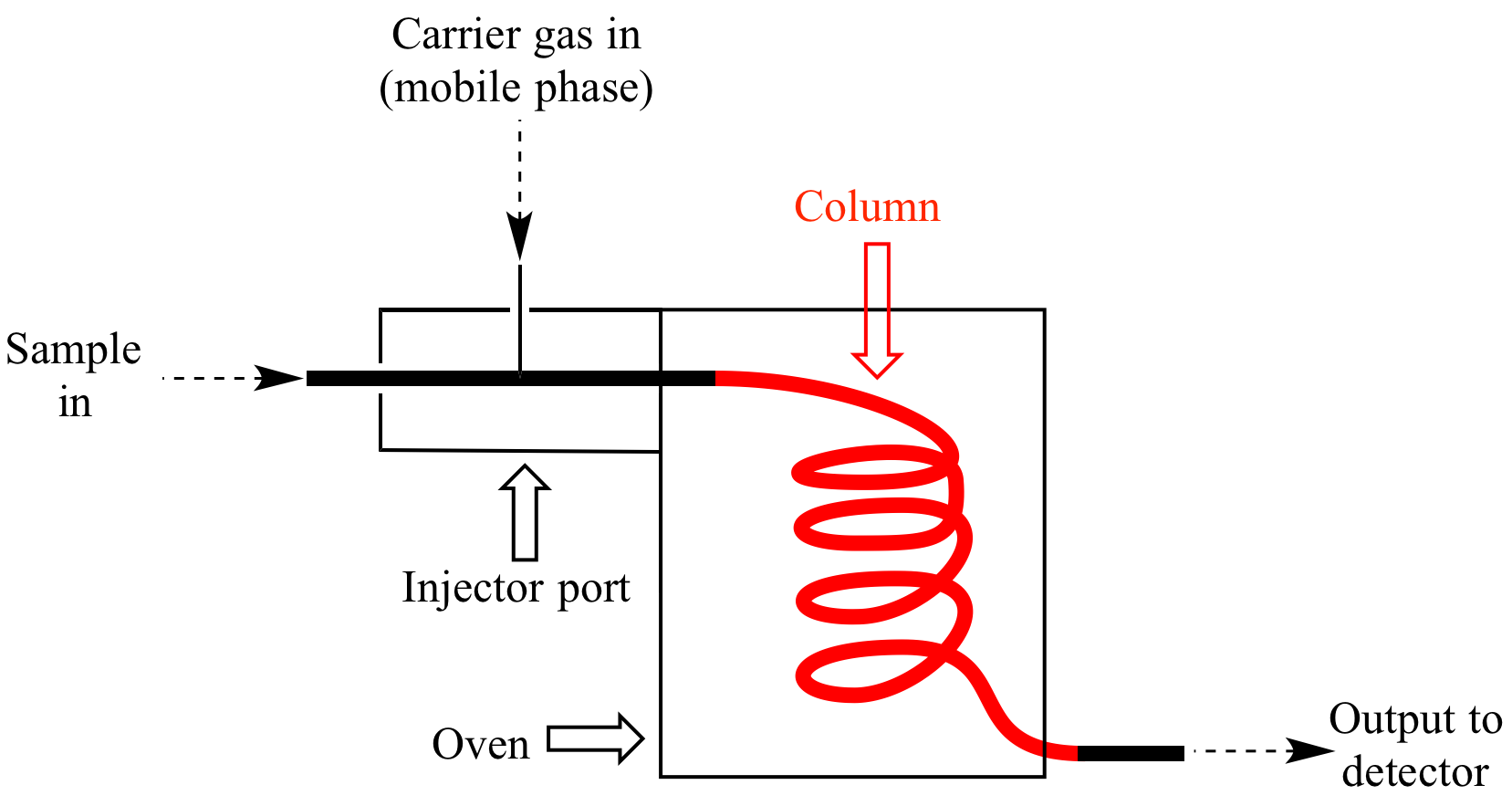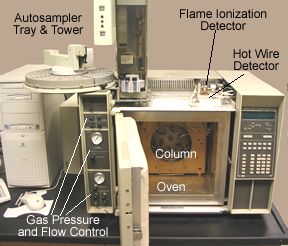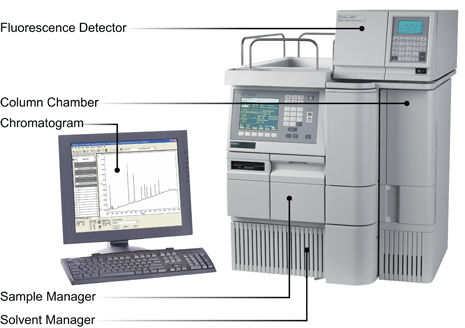Chromatography: A method for
separation of components in a mixture, based on differences in
attraction (retention) of these components for a
mobile phase
(a phase that flows) and
stationary phase (a phase that is
immobile). In
gas
chromatography, the mobile phase is a gas (called the
carrier gas; often helium) and the stationary phase is a solid or
high
boiling
point liquid. In
HPLC,
the mobile phase is a liquid and the stationary phase is a
solid. When the stationary phase is held in a tube of some
sort (as in
gas
chromatography and
HPLC)
the method is called
column
chromatography. Other stationary phases can be used, such
as paper (in which case the technique is called paper
chromatography).
Click on the image to view a
YouTube video demonstrating column chromatography being used to
separate colored compounds. Note the different colored bands,
caused by different compounds in the mixtures.





